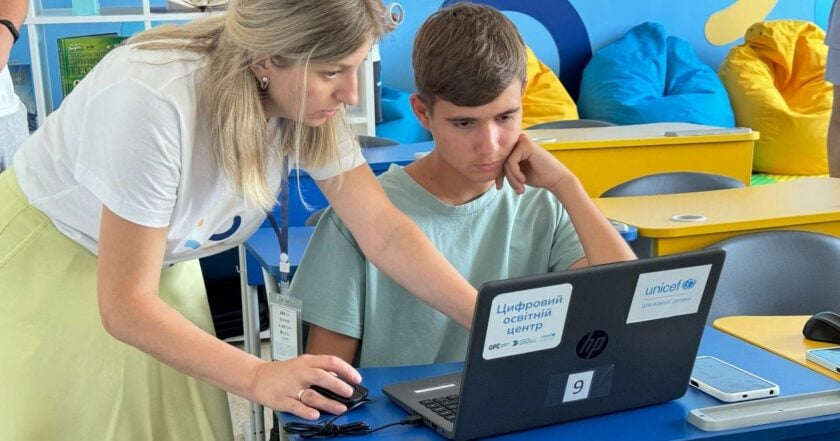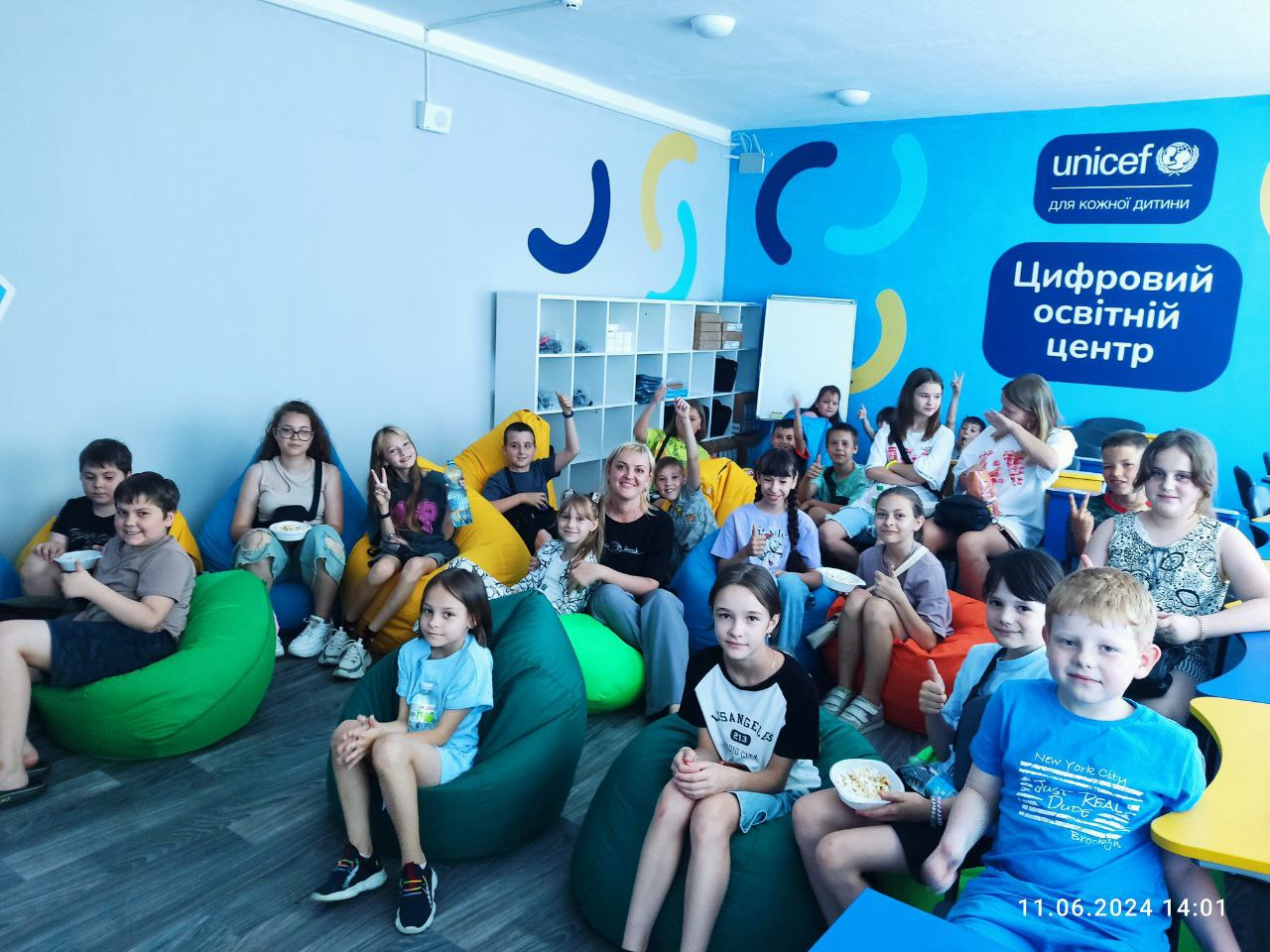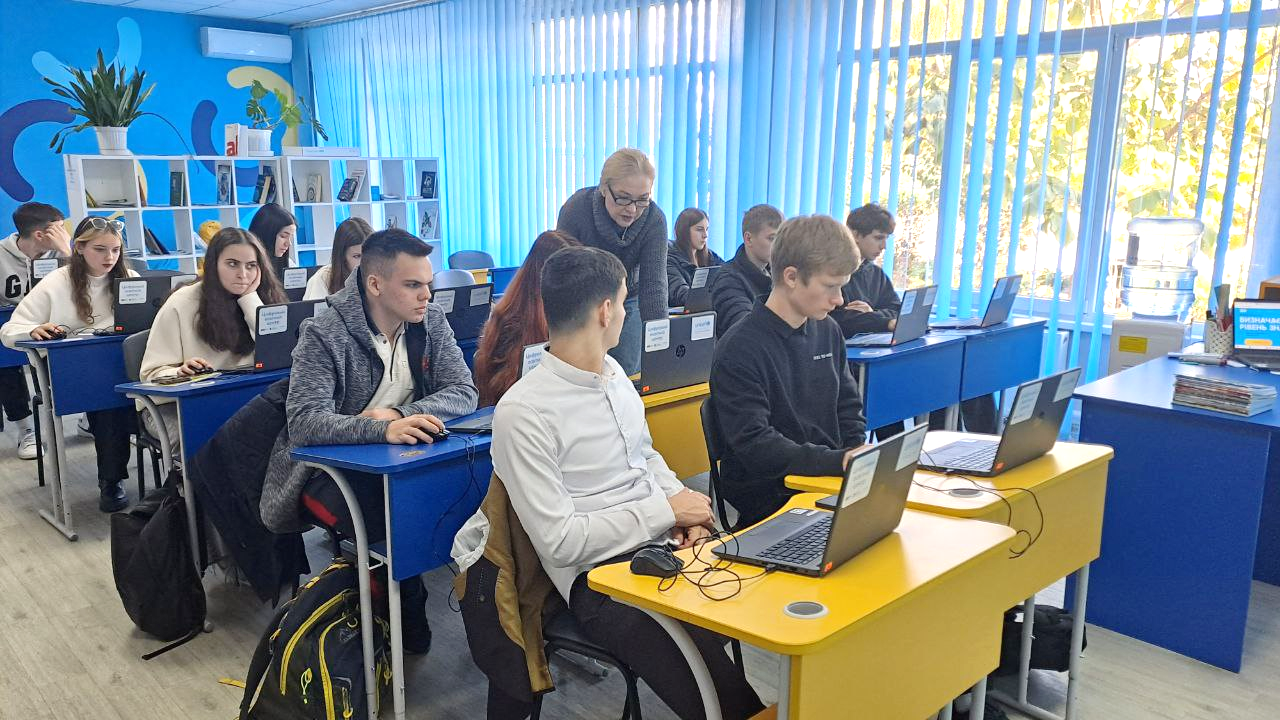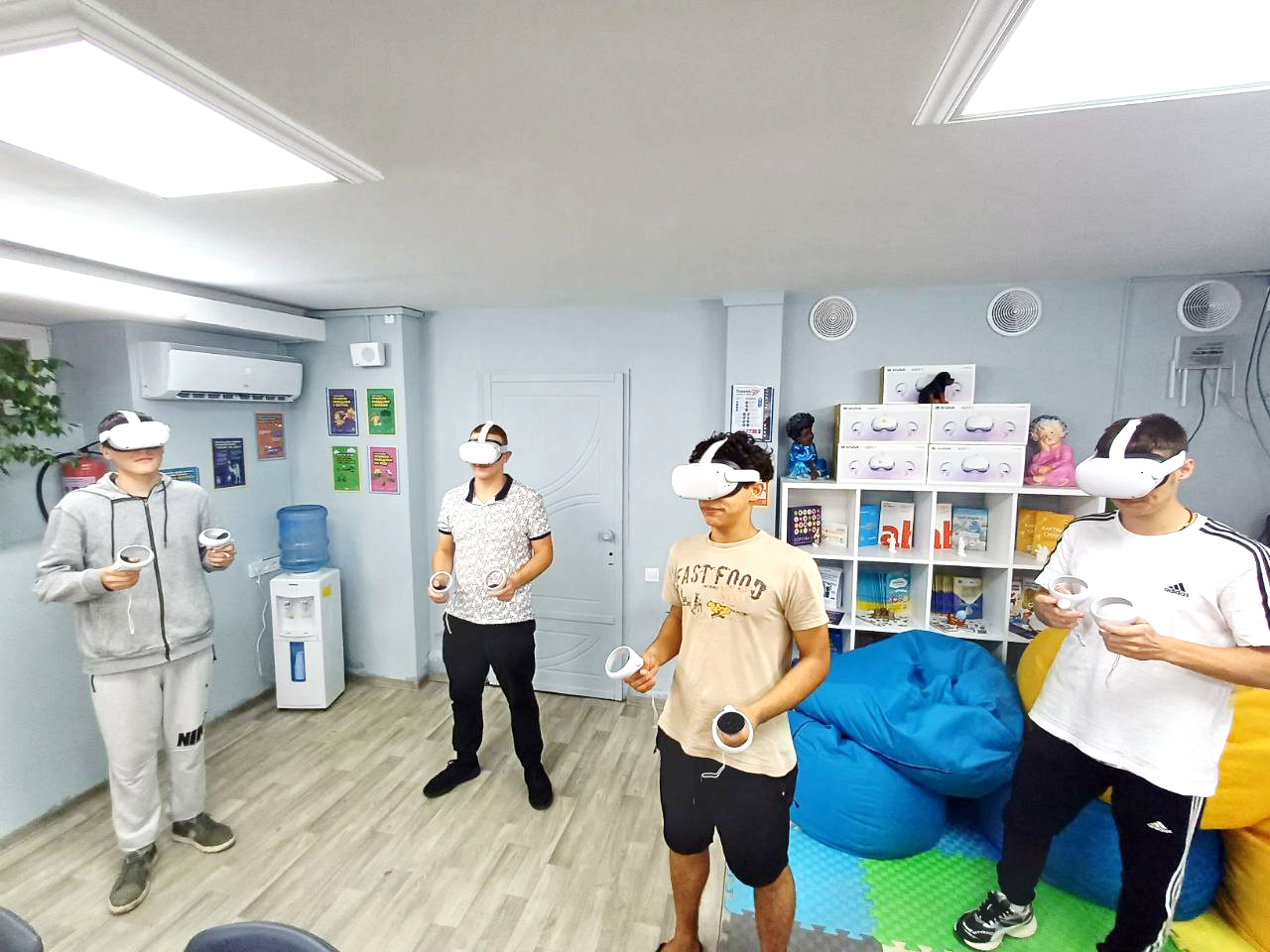Solutions from Ukraine: three regions unveil cutting-edge educational spaces for children

Kids can learn and unwind at the centers with the latest cutting-edge technologies for maximum benefit.
The Association of Innovative and Digital Education reported that.
What is the problem?
As a result of the war, the south of Ukraine has suffered significant destruction, and millions of children have found themselves on the verge of a humanitarian catastrophe. Many schools have been destroyed or turned into shelters, and constant shelling creates a danger for conducting in-person education.
The situation in the Kherson region is even more tense because it is bombed daily. Under such conditions, about 10,000 students live in the Kherson region, who need to be provided with proper training and access to education. In other regions, this issue is also becoming relevant due to possible blackouts.
What is the solution?
UNICEF and the Association for Innovative and Digital Education (AIDE) have partnered with the Ministry of Education and Science to establish 46 Digital Education Centers in the Kherson, Mykolaiv, and Odesa regions. These centers will provide students with access to educational resources.
"The state continues to actively work to ensure safe and accessible education for our children. We are making every effort to restore face-to-face education in regions where this is possible while at the same time considering new formats for organizing the educational process for the safety of students. Digital education centers are the best alternative for children now if there is no opportunity to study in schools," Deputy Minister of Education and Science of Ukraine Nadiia Kuzmychova said.
Since the beginning of 2024, 16 Digital Education Centers have been successfully operating in three southern regions (Kherson, Mykolaiv, and Odesa), and 30 more have started operating since the new academic year.

"Digital education centers are located primarily in communities without in-person education. These are either liberated communities or those close to the line of active hostilities. Educational spaces also cover certain areas of regional centers, for example, Odesa and Mykolaiv, in which some schools also do not operate offline completely or partially due to the absence or an insufficient number of places in shelters," Anatolii Ihnatovych, UNICEF Education Project Coordinator, says.

How does it work?
Digital Education Centers, which utilize cutting-edge technologies such as Artificial Intelligence, virtual reality, case studies, and Minecraft, allow children to learn and have fun while gaining valuable skills.

"Our team has successfully opened 46 centers in a short period. This included upgrading facilities, providing modern equipment, and implementing the "flipped classroom" approach to address learning gaps. This method puts the child at the center of the learning experience, using gamified technologies for independent information processing. At the same time, the teacher acts as a supportive mentor whom students can turn to for guidance in their learning journey. Thus, children and adolescents become not only interested in the learning process itself, which they manage themselves, but also develop important life skills of time management, independent decision-making, etc.," Mariia Bohuslav, Executive Director of the Association of Innovative and Digital Education, Coordinator of the Network of Ukrainian Educational Hubs, explains.

In November, a three-day space management training was held for the new 30 Digital Educational Centers coordinators.
"The Kherson region needs to have such an infrastructure for children as Digital Educational Centers since in our region; students have been learning online for the third year in a row, the first of which, unfortunately, many children were forced to spend in occupation. Such centers are very popular not only among children, but also among adults, because sometimes they are the only safe space with all the conditions for communication in communities," the head of the Kherson Regional State Administration, Oleksandr Prokudin, says.
For reference:
On December 3, a reading event took place at the City of Goodness International Center in Chernivtsi. It was attended by evacuated children, children in rehabilitation, writer Nataliia Popovych, canine therapist Ihor Rozdobudko, and dogs with disabilities from the "Khvostyky" shelter. They all took part in reading the book Special Animals, which focuses on animals with injuries and disabilities. The event also included discussions about the ethical treatment of animals and highlighted the shared beauty and strength of both injured humans and animals.

Charity Fair-2024 at Diplomatic Academy in Kyiv raises over $24,000 with 26 foreign embassies in attendance

Nobel laureate Krausz spearheads creation of gifted children's educational center in Zakarpattia region

Finnish company opens free educational center in Chernihiv region


















































